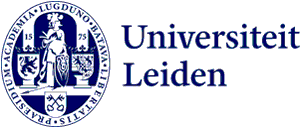
Victor van der Horst is Chair of the Faculty Council: 'Everyone can contact us'
Since September, Victor van der Horst is a member of the Faculty Council. Well, not just a member; he is the Chairman! In addition, this master's student in Mathematics also devotes himself to our Faculty in many other ways. 'I'm convinced we need input from all layers to keep improving our Faculty.' 6 questions to find out more about Victor and his work.
What do you study?
I study Mathematics. I am in the first year of my master's degree. Before that, I obtained a double Bachelor's degree in Mathematics and Physics.
You are a very active student at the faculty. Tell us more!
Since the first year I have been an ambassador for Mathematics. That means I help out with information activities for prospective students, at open days for instance.
I am also active at the Leidsche Flesch, the study association for students of Physics, Astronomy, Mathematics and Computer Sciences. And I have been working at the Science International Office for two years now. At the international office, we help foreign students who come to study in Leiden and facilitate our students to study abroad.
Why the Faculty Council?
As a Faculty Council, we represent all 6000 students and 2400 employees. We are a sparring partner for the Faculty Board. On some subjects we give advice, on others, the Board needs our approval. This is the case, for example, when it comes to the quality of our education.
In addition, we critically examine the decisions that are made and their effect on staff and students. I am convinced that input from all layers makes our Faculty and University better. It keeps our education and research at a high level.
This is one of the reasons why I enjoy being on the Faculty Council. It is beautiful and important work, and especially at the Faculty of Science. At our Faculty, everyone is fully committed to top-level research and education, but it is also important that we make ourselves heard: inside and outside of the Faculty. For example in the University Council. This is where the decisions are made that will affect our Faculty.
What are the main topics in the Faculty Council?
As the Faculty Council, we deal with many different things. For example, the digitalisation of education and the implementation of the new collective labour agreement. We are also involved in the appointment of new board members for our Faculty.
We critically examine all decisions that are made. Especially the decisions that concern students and employees. We also represent the Faculty within the rest of the University. This is important, because education and research at W&N are very different from those at other faculties. This requires customisation and, yes, also some autonomy.
We’ve just had our first meeting with the Faculty Board. We discussed for example about how education will look like in the coming year. Physical education is important for students. How do they feel about hybrid education and what does that require from our lecturers?
You are the chairman of the council. Isn't that difficult?
Only at the Faculty of Science, a student is chair of the Faculty Council. So that's quite unique. I find it challenging to be on the council and to be the Chairman as well. Fortunately, I already know the Faculty well, so I can find my way around. And of course, there are fourteen members, we do it together. As chair, I make sure things run smoothly, I am the coordinator and the contact to the outside world.
Who is de Faculty Council for?
The Faculty Council is for everyone. Please let us know what is going well, or not so well. Do you encounter problems in your study or work? Contact us! We can talk to the right people in the Faculty.
Text: Christi Waanders
The Faculty Council of Science is the representative body of the faculty. Its role is to follow the Faculty Board critically, to advise and sometimes participate in decisions on important issues. It also represents the faculty in the university, for example in the University Council.
There are fourteen members in the council, seven students and seven employees. Elections are held each year, after which the new council starts in the new academic year.
